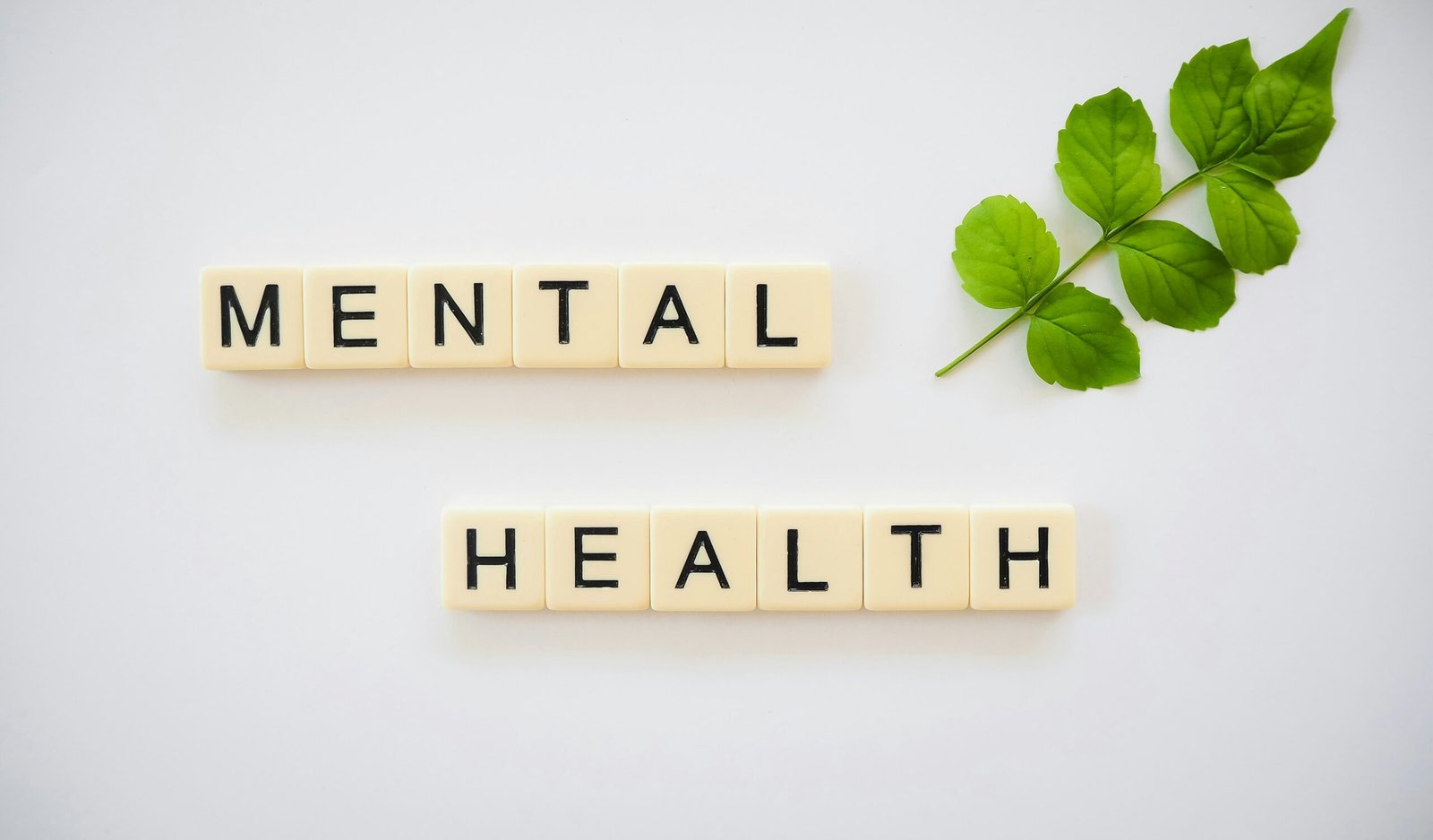
Understanding Mental Health
Mental health refers to our emotional, psychological, and social well-being. It plays a crucial role in how we think, feel, and act, impacting our decision-making processes, stress management, and relationships with others. The importance of mental health cannot be overstated, as it affects daily functioning and contributes significantly to overall well-being. A healthy mental state enables individuals to cope with the normal stresses of life, work productively, and contribute to their community.
Despite its significance, mental health is often overlooked or underestimated, leading to widespread misconceptions. Many individuals erroneously equate mental health solely with mental illness, failing to recognize that everyone has mental health, just as everyone has physical health. This misunderstanding can lead to stigma, discouraging individuals from seeking help or supporting others in their struggles. Furthermore, it can foster a belief that mental health issues are signs of weakness or personal failure, rather than legitimate health conditions that require attention, similar to physical ailments.
It is important to understand that mental health is a broad spectrum. It encompasses various states, from mental well-being and resilience to psychological distress and disorders. Factors such as biological predisposition, trauma, and life experiences can influence an individual’s mental health. Recognizing that mental health is as important as physical health emphasizes the need for ongoing conversations that promote awareness, understanding, and acceptance.
In contemporary society, there is a growing recognition of the need to prioritize mental health, advocating for the integration of mental health care into general health services. This includes increased accessibility to mental health resources, early intervention strategies, and initiatives aimed at enhancing public understanding. By addressing mental health with the same urgency as physical health, we can create environments that foster overall well-being, paving the way for healthier lives.
The Importance of Self-Care
Self-care is a multifaceted concept that plays a crucial role in maintaining overall well-being, particularly concerning mental health. By recognizing self-care as a priority, individuals can enhance their emotional and psychological resilience, equipping themselves better to navigate the complexities of life. The dimensions of self-care encompass physical, emotional, social, and spiritual aspects, each contributing to a holistic sense of wellness.
Physical self-care involves engaging in activities that promote bodily health. This can include regular exercise, proper nutrition, and adequate sleep. By addressing physical needs, individuals may find a boost in their mood and energy levels, which are vital for facing daily challenges. Emotional self-care focuses on understanding and managing one’s feelings, facilitating a healthier emotional landscape. Techniques such as journaling, practicing mindfulness, and seeking therapy can nurture emotional health, allowing for better coping strategies in stressful situations.
Social self-care is about nurturing relationships and ensuring one has a support system. Engaging with friends and family members, participating in community activities, or joining support groups can foster connections that are necessary for emotional stability. Lastly, spiritual self-care, regardless of religious affiliation, encourages individuals to seek meaning and purpose. This can be achieved through practices such as meditation, spending time in nature, or deepening one’s religious or spiritual beliefs.
Investing time in self-care is not merely a luxury; it is a fundamental requirement for sustaining mental health. Proactively prioritizing personal well-being through self-care enhances resilience against stress and prevents mental health issues. Thus, by implementing these strategies, individuals lay a solid foundation for a more balanced and fulfilling life. Taking these steps demonstrates a commitment to one’s health, ultimately leading to a transformative impact on mental wellness.
Establishing a Routine
In a fast-paced world, a structured daily routine serves as a powerful tool for enhancing mental health. Establishing a routine provides a sense of stability and predictability, factors that are essential for maintaining emotional equilibrium. When individuals adhere to a consistent schedule, it helps to significantly reduce anxiety levels by minimizing uncertainty. Predictability allows people to focus on their tasks and responsibilities without the additional stress of unexpected changes, ultimately fostering a more controlled environment in which they can thrive.
Moreover, routines contribute to creating healthy habits, which are vital for overall well-being. By dedicating specific times for activities such as exercise, meals, work, and relaxation, individuals are more likely to engage in behaviors that promote physical and mental health. These routines help in building discipline, making it easier to allocate time for self-care and other enriching activities. The act of planning out one’s day can also provide a sense of accomplishment, which reinforces positive feelings about one’s daily performance.
To create and maintain a personal routine, it is crucial to start small. Individuals can begin by establishing a morning ritual, such as waking up at the same time each day, enjoying a healthy breakfast, or practicing mindfulness. Over time, additional elements can be incorporated, such as setting designated times for work and leisure. It is essential to remain flexible; if deviations occur, adapting rather than abandoning the entire routine proves beneficial. Tracking progress, whether through journaling or using digital tools, can further solidify commitment to the routine. By embracing structured daily habits, one can cultivate a robust framework that not only enhances productivity but also significantly uplifts mental health. Ultimately, the benefits of having a well-established routine extend beyond mere organization, contributing to a sense of control and peace in daily life.
Mindfulness and Meditation Practices
Mindfulness and meditation are powerful practices that have garnered increasing attention for their ability to enhance mental health and overall well-being. These techniques focus on cultivating awareness and presence in the moment, allowing individuals to better manage stress and improve emotional regulation. Mindfulness, in particular, is the practice of paying purposeful attention to one’s thoughts, feelings, and bodily sensations without judgment. Meditation, often used as a tool for fostering mindfulness, encompasses various forms that can be tailored to one’s personal preferences and needs.
One of the most straightforward methods for practicing mindfulness is through mindful breathing exercises. This involves concentrating on the breath—observing each inhalation and exhalation to anchor oneself in the present moment. By focusing on breath, practitioners can effectively alleviate anxiety and create a sense of calm. Additionally, guided meditations are a useful resource for those new to these practices. They typically include audio or video instructions that lead individuals through various meditative techniques, making it easier to develop a consistent routine.
There are also more structured approaches, such as Body Scan meditation, which encourages awareness of physical sensations in a sequential manner, or Loving-Kindness meditation, which fosters positive emotions towards oneself and others. Many applications and online platforms offer free resources, including guided sessions and courses designed to help users cultivate a regular mindfulness practice. Integrating these techniques into daily life can significantly enhance mental clarity and emotional resilience, equipping individuals to navigate the complexities of everyday challenges.
As one explores mindfulness and meditation, it is important to recognize that these practices require patience and consistency. Over time, they can lead to profound transformations in mental health, providing users with valuable tools to manage stress and improve emotional well-being.
Physical Activity and Its Impact on Mental Health
Physical activity plays a crucial role in enhancing mental health, as numerous studies indicate a strong correlation between exercise and psychological well-being. Engaging in regular physical exercise has been linked to reduced symptoms of anxiety and depression, improved mood, and enhanced cognitive function. The relationship between physical health and mental wellness is increasingly recognized in contemporary health discussions, making it essential to incorporate movement into our daily routines.
Various types of exercise can yield significant psychological benefits. Aerobic exercises, such as running, swimming, and cycling, not only elevate heart rate but also trigger the release of endorphins, hormones that act as natural painkillers and mood elevators. Resistance training, including weight lifting or bodyweight exercises, can enhance self-esteem as individuals notice improvements in their strength and physique. Additionally, mind-body practices, such as yoga and tai chi, foster mindfulness and relaxation, effectively reducing stress levels and promoting mental clarity.
Incorporating physical activity into everyday life does not necessitate a rigorous workout regimen. Simple changes can have a profound impact on mental health. For example, individuals may opt to take brisk walks during their lunch breaks, partake in recreational sports, or engage in dance classes. Even household chores, like gardening or cleaning, promote movement and can serve as an excellent way to boost mood while fulfilling necessary tasks. It is vital for each person to find physical activities they enjoy, as this encourages consistency and long-term commitment to an active lifestyle.
In conclusion, integrating physical activity into daily routines can significantly improve mental health outcomes. By recognizing the profound connection between movement and mental wellness, individuals can take proactive steps towards a healthier, more fulfilling life.
The Role of Nutrition in Mental Health
Nutrition plays a vital role in mental health and well-being, as the foods we consume can significantly influence our brain function. Several studies have indicated a strong correlation between diet and mental health outcomes, suggesting that particular nutrients are essential for optimal psychological health. For instance, omega-3 fatty acids, found abundantly in fish, flaxseeds, and walnuts, have been shown to reduce symptoms of depression and anxiety. These essential fatty acids are integral to forming brain cell membranes and facilitating cellular communication, which is crucial for cognitive function.
Another critical component of a healthy diet is antioxidants, primarily found in fruits and vegetables. These compounds combat oxidative stress, which has been linked to cognitive decline and the onset of various mood disorders. Consuming a diet rich in antioxidants—such as berries, leafy greens, and nuts—can help mitigate these effects, thereby supporting overall mental well-being. Additionally, B vitamins, particularly B6, B12, and folate, play an essential role in neurotransmitter function and energy production, further influencing mood regulation.
Maintaining a balanced diet is imperative for sustaining mental health. A well-rounded nutritional approach should include a variety of food groups to ensure adequate intake of these essential nutrients. Practical tips for enhancing nutrition include meal planning, which helps facilitate healthier choices, and reducing processed food consumption, as high sugar and unhealthy fat content can trigger mood swings and fatigue. Furthermore, hydration is often overlooked; drinking enough water throughout the day can help maintain energy levels and cognitive clarity.
By recognizing the profound impact of dietary choices on mental health, individuals can take proactive steps to nourish their minds through food. Prioritizing nutrition can lead to an improved mood, better stress management, and enhanced overall mental resilience.
Building Strong Relationships
Social connections play a crucial role in promoting mental health and overall well-being. Engaging with others not only satisfies our innate desire for connection, but also provides substantial emotional support that can significantly mitigate feelings of loneliness and anxiety. As humans are inherently social beings, building strong relationships is pivotal to cultivating a mentally healthy lifestyle.
To nurture existing relationships, it is essential to invest time and effort. Regular communication, whether through face-to-face interactions, phone calls, or digital means, can help reinforce bonds. Actively participating in each other’s lives, celebrating achievements, and showing empathy during difficult times can strengthen relationships and create a robust support system. It is important to actively listen, validate feelings, and offer assistance, which fosters trust and security among friends and family.
Overcoming feelings of loneliness can be challenging, especially in today’s fast-paced world. To combat this, individuals should seek opportunities to connect with others, perhaps by joining clubs, engaging in community events, or volunteering. These activities not only provide a sense of belonging but also expose individuals to new friendships and social networks. Online platforms can also facilitate connections, allowing people to share experiences and feelings, ultimately enriching one’s social interactions.
Developing a supportive community is paramount for mental health advocacy. Surrounding oneself with positive influences encourages resilience and promotes well-being. Encouraging those around you to participate in healthy habits, such as group exercise or mindfulness practices, can enhance community strength. Embracing diversity within connections helps foster an inclusive environment that celebrates differences, thus enriching relationships and making them more meaningful. By prioritizing these aspects, individuals can transform their lives and contribute positively to their mental health and that of others.
Recognizing the Need for Professional Assistance
Understanding when to seek professional help for mental health concerns can be a pivotal moment in the journey toward wellness. Mental health can significantly affect overall well-being, and it is essential to recognize the signs that may indicate the necessity for professional intervention. Symptoms such as persistent feelings of sadness, anxiety that interferes with daily life, or difficulties in maintaining relationships are often indications that you may benefit from the guidance of a mental health professional.
Types of Mental Health Services Available
There are various types of mental health services available, tailored to meet the diverse needs of individuals. These services can range from individual therapy, group therapy, and family therapy to specialized treatments such as cognitive-behavioral therapy (CBT) and dialectical behavior therapy (DBT). Additionally, psychiatric services may provide medication management as part of a comprehensive treatment plan. Understanding the different modalities can aid in selecting the appropriate type of therapy that aligns with one’s specific needs.
What to Expect During Therapy
Many individuals may feel apprehensive about starting therapy; however, it is essential to know what to expect. Initially, the therapist will conduct an assessment to understand the individual’s history, current concerns, and goals for treatment. Sessions will typically provide a safe and confidential space for discussion, where coping strategies and tools are offered to manage symptoms effectively. Consistency in attending therapy sessions is vital, as progress often requires time and commitment.
Finding the Right Mental Health Professional
Finding the right mental health professional is crucial for effective treatment. Recommendations from healthcare providers or trusted individuals, along with online directories, can be valuable resources in this search. When choosing a professional, consider factors such as their credentials, areas of expertise, and treatment approaches. It is also essential to feel comfortable and understood, as this relationship is a cornerstone of successful therapy.
Creating a Long-term Mental Health Plan
Developing a comprehensive mental health plan is an essential step towards achieving lasting well-being. A personalized approach ensures that the plan addresses individual needs and circumstances, which is critical for fostering resilience and growth. To initiate this process, individuals should begin by assessing their current mental health status. This can involve self-reflection or seeking input from mental health professionals who can provide insights into specific needs and potential challenges.
The next step in crafting a mental health plan is to establish clear, realistic goals. These objectives should be tailored to personal aspirations and should encompass various aspects of life, such as emotional regulation, stress management, and interpersonal relationships. Employing the SMART criteria—Specific, Measurable, Achievable, Relevant, and Time-bound—can help in formulating these goals effectively. Writing down these goals can also create a tangible reminder of one’s commitment and serve as motivation to make continual progress.
Tracking progress is another crucial component of a long-term mental health plan. This may involve keeping a journal, using mobile applications, or regular check-ins with a therapist. Documentation allows individuals to observe patterns in their mental health over time, revealing which strategies are effective and which may require adjustment. Furthermore, reflecting on successes and setbacks enables one to learn from experiences and adapt the plan as necessary.
Finally, maintaining commitment to mental health practices is vital for sustained change. This involves incorporating daily routines that promote mental well-being, whether through mindfulness, regular physical activity, or social engagement. Consistency in these practices reinforces their benefits and aids in building resilience against future stressors. In conclusion, a well-structured long-term mental health plan not only improves current mental health but also equips individuals with strategies to navigate life challenges effectively.






